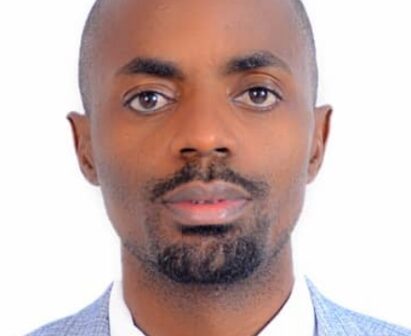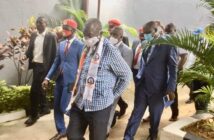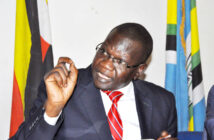The NRM government captured Power in 1986 after a protracted Liberation Struggle inheriting the post-independence Uganda characterized by turbulence and uncertainty. This was manifested through coups, short-lived regimes, and utter disregard for the rule of Law with state-inspired violence minted upon Civilians.
The Colonial Setup of a country with a president and an executive prime Minister set the ground for intrigue and animosity among the people who were entrusted with the mantle of leading the new Uganda after the Lowering down of the Union Jerk. With the immediate post-independence prominently captured in the Preamble of the 1995 Constitution as turbulent, the greatest stride attained since Independence is the relative peace and stability ushered in by the NRM Government. It’s this peace that has facilitated the development of Uganda from a GDP of about 4 billion US dollars in 1986 to the Current GDP standing at over 48 billion dollars.
Suffice it to say, the Other critical developments and investments have been possible due to the stability across the country.
It, therefore, is not surprising that Uganda is host to the biggest number of refugees in the region a testimony of the prevailing peace. Several refugees from Congo, Rwanda, South Sudan, etc have time and again found a Haven in Uganda due to the instabilities back home.
The infrastructure development especially in the Road sector and Electricity coverage are worthy of notice. All points in Uganda from border to border are connected by tarmac. From Bundibugyo at the end of the Rwenzori with the Congo Boarder to Oraba Boarder with South Sudan, Kisoro to Marab, etc. Roads and electricity have not only facilitated internal trade but also foreign trade. Nearly, all sub-counties in the country have or are on the verge of being connected to the electricity national grid thanks to the large-scale investments in Dams to complement the colonial Owen Falls Dam.
Uganda has largely been independent in the manufacturing sector with the NRM transforming Uganda from scarcity to a country of surplus for essential goods. Today, the country exports essential commodities to the regional Markets in Congo, South Sudan etc earning foreign exchange. Before 1986, Ugandans could queue for basic essential commodities with top Government officials and Army men given priority over other Ugandans a status that has long changed. All households can now afford salt, sugar, soap, etc.
No country can claim independence with a weak army. The NRM under the stewardship of a transformational leader in Gen YK Museveni prides itself in a strong National Army the Uganda Peoples Defender Forces responsible for the sovereignty and protection of Our territorial boundaries. With a clear ideology and professionalism, the UPDF is a key factor in regional security in line with the Principle of Africanism. Another highlight for our independence as a country is therefore the transition from a rug tag NRA into a potent Force of the UPDF.
The recent Operation Shuja against the ADF in Congo Under the able Command of Maj. Gen Dick Olum is yet another show of Might, capability, and tactical Prowess of the National Army which is a successful endeavor to protect Ugandans and their Property by creating a buffer. It is also an advancement of the spirit of Pan Africanism given the relative Peace enjoyed by the Congolese In Eastern DRC.
The Educational sector has also seen tremendous milestones under the NRM regime. With the USE and UPE programs coupled with a host of many higher institutions of learning and Public Universities, More Ugandans are acquiring the competencies required to transform both the Public and Private sectors. The Presidential Initiative to Skill the Boy and Girl Child is another master stroke to not only provide skilled labor but also address the unemployment problem to spur the productivity of the Labour Force.
It’s not surprising that Uganda’s Population has grown to over 40M but it’s rather to the improvement in the health service provision. Regular Immunization, the national mosquito distribution campaigns, and the decentralization of Health facilities to the lower-level administrative units translate into a higher life expectancy.
The deepening of democracy is another stride attributed to the Independent Uganda courtesy of the NRM Government. It’s under this regime that Ugandans can decide on who leads them and for how long given the periodic elections after every 5 years. Regular free and fair election is a major tenet of any democratic country.
The bottom-up development strategy anchored at the Parish Level to increase Household Incomes gives an insight into the bright future of Uganda. After 5 Years it’s expected that each Parish will not have less than 500M shillings to form a Parish based Revolving fund to spur the Participation of all Ugandans in the Money Economy. The Success of The PDM and other programs will cap the total Independence of Uganda as a Country.
Emmanuel Businge is the DRCC for Fort Portal City.
busingeemanuel@gmail.com



